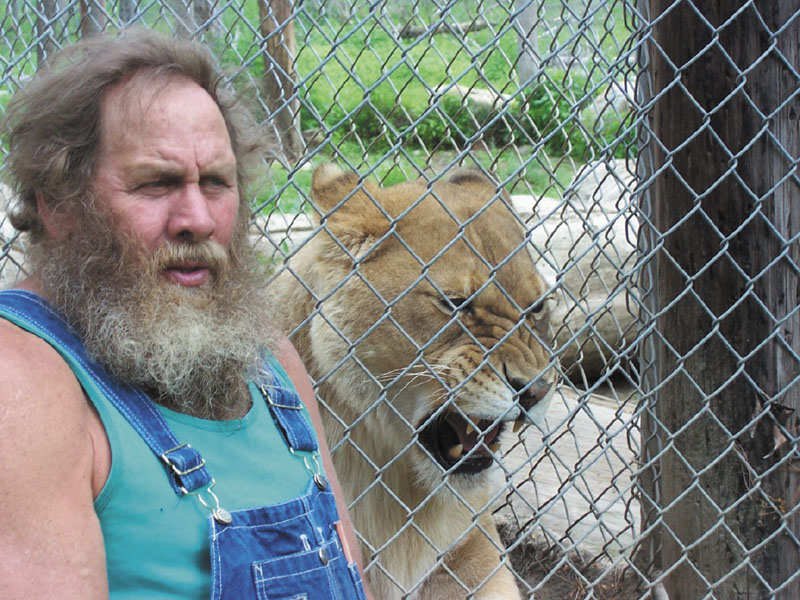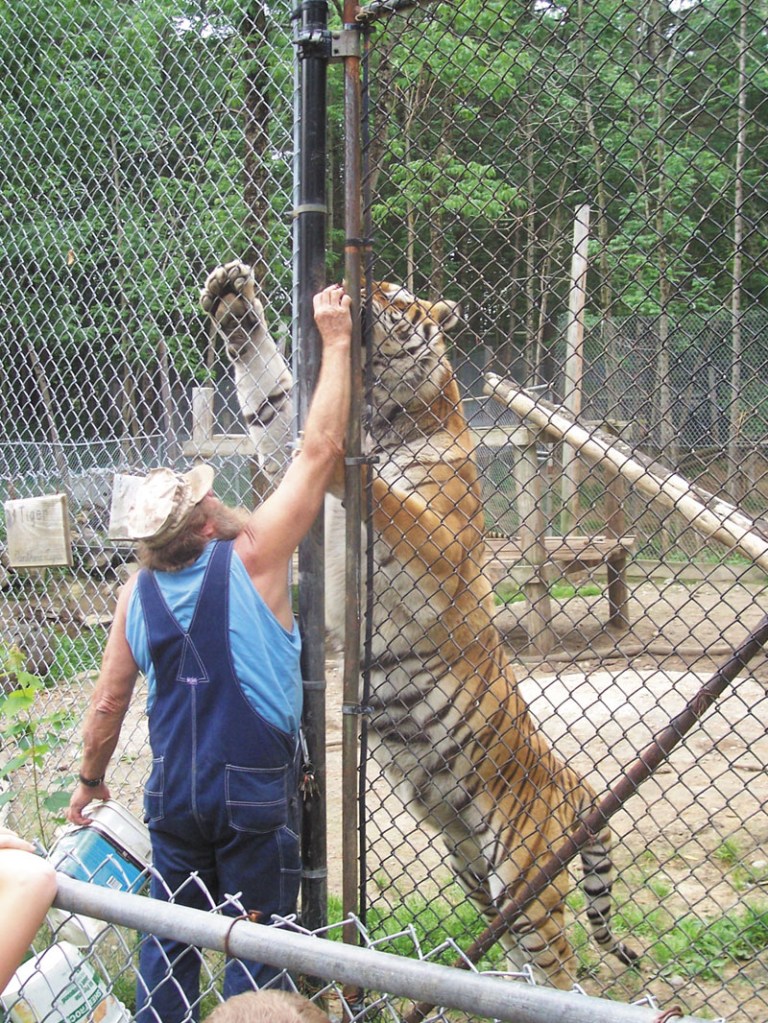MOUNT VERNON — Maine has strict regulations on captive wildlife that protect both the animals and the people around them, say state officials and the owners of a sanctuary here.
That’s in contrast to Ohio, which has no permit or license requirements for exotic animals, and where authorities killed 48 animals — including monkeys, tigers and lions — released by a suicidal man.
“Maine has a very good law and regulation in existence now,” said Julie Miner, who owns DEW Animal Kingdom and Sanctuary with her husband, Bob. “You cannot own an exotic animal in the state of Maine without a permit. You cannot. It’s illegal.”
The Miners began their sanctuary in 1980 as a form of “animal therapy” for Bob Miner, a veteran who had suffered three strokes and a heart attack.
DEW stands for “domestic, exotic and wild,” and the sanctuary is home to several big cats, lemurs, wolves and several other Maine and barnyard animals. About 3,000 people visit the park each summer.
As someone who loves animals, Julie Miner was “very, very sad” when she heard that Zanesville, Ohio, resident Terry Thompson had released all of his 56 animals before shooting himself on Tuesday. He must have known they would be killed, she said.
“Obviously the man had some mental issues, and unfortunately the animals paid for those,” she said. “I’m hoping that maybe Ohio will get their laws and regulations in order.”
Maine’s permitting process for owning wild animals provides for inspection of wildlife facilities, requires an emergency plan and sets requirements for the health and comfort of the animals.
An exhibitor’s permit — which is required for places like DEW, York’s Wild Kingdom and Kisma Preserve in Trenton — requires additional barriers and public safety measures.
Maine also has permits for importing or breeding wildlife.
Edith Smith, spokeswoman for the Department of Inland Fisheries and Wildlife, said the number of permits to own wild animals issued by the state was not available on Thursday.
In New England, only Rhode Island and Maine permit private possession of exotic animals.
Julie Miner said she’s glad Maine has regulations.
“You need to be educated, you need to know what you’re doing,” she said. “It’s a good thing.”
But the rules in place are not stringent enough for the Humane Society of the United States.
The Humane Society advocates bans on private possession of primates, bears, big cats, dangerous reptiles and wolves. Maine allows people to own big cats, dangerous reptiles and wolves, state director Katie Lisnick said.
“Most average citizens are not able to provide for the welfare of those types of animals,” she said. “They’re large animals; they have complex needs.”
And while the Department of Inland Fisheries and Wildlife knows who owns wild animals, there are no requirements to tell local law enforcement or other officials.
“Most people don’t advertise the fact that they have a lion in their house,” Lisnick said.
The rules for exhibitors are better, Lisnick said.
“They’re not the best that I’ve ever seen in the country, but they’re pretty much in line with what the USDA has for standards,” she said. “There are some states that get a little bit better.”
State officials said DEW Animal Kingdom and Sanctuary has a reputation for taking good care of its animals.
John Dixon Jr., who lives near DEW on Pond Road, said he can hear the lions and tigers roar from his property. The sanctuary seems clean and well-run and he and his family spent time there last weekend.
Dixon said he does not worry about having DEW in his neighborhood.
“He’s not about to go blow his brains out,” Dixon said, referring to Bob Miner. “That’s what happened in Ohio.”
Born Free USA, which opposes captivity of wild animals, reports six escapes or attacks by exotic animals in Maine since 1996.
Lisnick said the carnage in Ohio may prompt discussions around the country about the possession of exotic animals.
“The conversation needs to be had if Maine wants to have these animals in the state or not,” she said. “They are here. We need to realize that and think a little bit about whether we want to have those animals in the state.”
Susan McMillan — 621-5645
smcmillan@mainetoday.com
Copy the Story LinkSend questions/comments to the editors.




Success. Please wait for the page to reload. If the page does not reload within 5 seconds, please refresh the page.
Enter your email and password to access comments.
Hi, to comment on stories you must . This profile is in addition to your subscription and website login.
Already have a commenting profile? .
Invalid username/password.
Please check your email to confirm and complete your registration.
Only subscribers are eligible to post comments. Please subscribe or login first for digital access. Here’s why.
Use the form below to reset your password. When you've submitted your account email, we will send an email with a reset code.